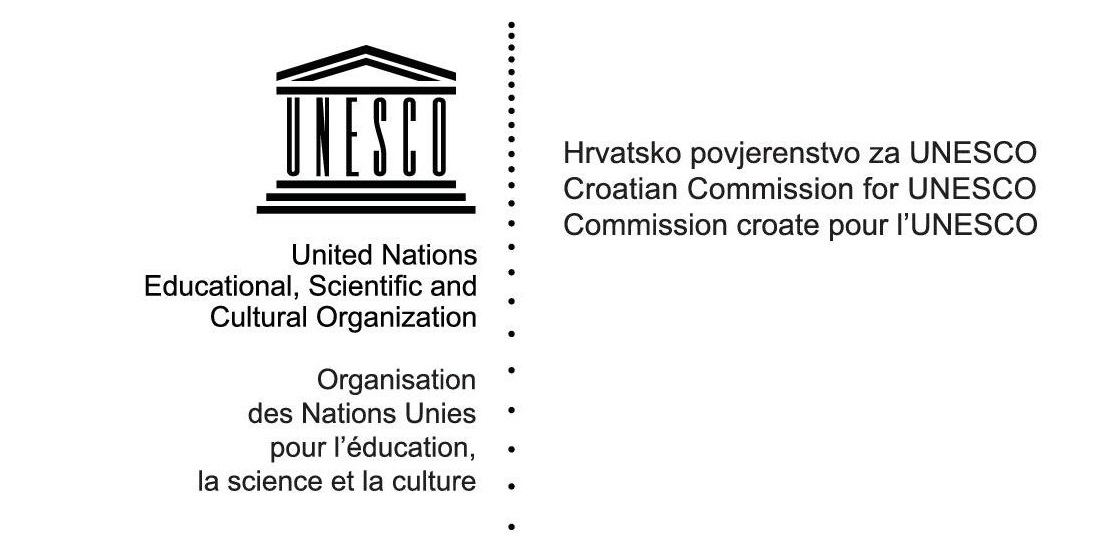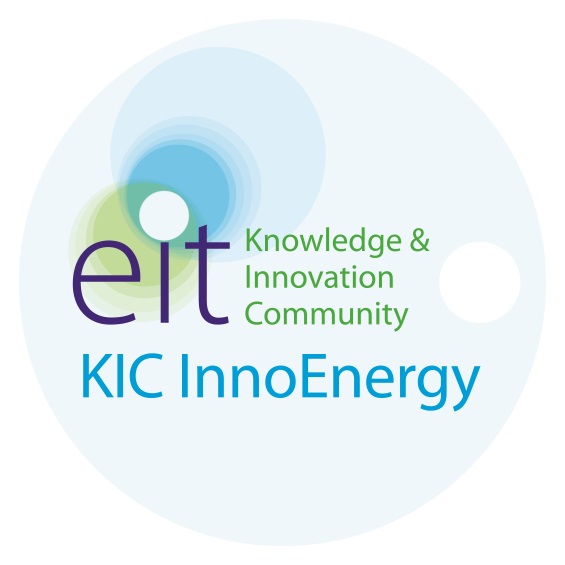SPECIAL EVENT: European Funding for Secure, Clean and Efficient Energy
Session resume:
European funding instrument “ Horizon 2020” has a budget of € 30 billion allocated to non-nuclear energy research and innovation for the period 2014-2020. The session will help to understand the objectives, find the appropriate EU funding and will cover practical issues related to the partner search and proposal submission.
The Energy Challenge of Horizon 2020 is designed to support the transition to a reliable, sustainable and competitive energy system. To make the transition to a competitive energy system, we need to overcome a number of challenges, such as increasingly scarce resources, growing energy needs and climate change.
The Energy Challenge is structured around seven specific objectives and research areas:
- Reducing energy consumption and carbon footprint
- Low-cost, low-carbon electricity supply
- Alternative fuels and mobile energy sources
- A single, smart European electricity grid
- New knowledge and technologies
- Robust decision making and public engagement
- Market uptake of energy and ICT innovation.
Experts from the National Contact Points will inform you about:
- Funding opportunities under Horizon 2020
- EUREKA, COST, EUROSTARS instruments
- Structural Funds, ERDF, ESF
- Regional cooperation measures, CEF
- Support for SMEs, COSME
- Financial Instruments, European Investment Bank, European Fund for Strategic Investments
- Rules for participation
- Submission procedures
- Partner search and further information sources
Target audience:
- Researchers, research institutions and universities
- Small and Medium Enterprises (SMEs)
- Industry
- Public bodies, cities and municipalities
The session will be organised by C-Energy 2020 – the European Network of National Contact Points for Energy in Horizon 2020
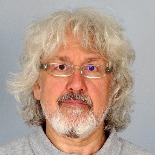
Dr. Piotr Swiatek
New European Energy
Cologne, Germany
Piotr Swiatek, Born 1953 in Wroclaw, is a German physicist Polish origin. He got his PhD in Solid State Physics from University of Cologne. 1986-2001 he worked as physicist in Research Centre Juelich, Germany.
He was Project Manager of "Fit for Europe" run by European Liaison Office of German Research Organisations KoWi untill 2003. "Fit for Europe" was a project supporting Central and Eastern European Countries (CEEC), financed by the "Stifterverband für die Deutsche Wissenschaft" and coordinated by KoWi.
The aim of Fit for Europe was to transfer the practical experience of KoWi to the partners in the CEEC, implement measures which will enhance their participation in EU Framework Programmes. 2004-2008 Piotr Swiatek was a Senior Science Officer at COST (European Cooperation in Science and Technology) in Brussels. COST is one of the longest-running instruments supporting co-operation among scientists and researchers across Europe. COST now has 35 member countries and enables scientists to collaborate in a wide spectrum of activities in research and technology.
Currently he works for the Project Management Agency of Research Centre Juelich in a H2020 National Contact Point Energy (NCP), on behalf of the Federal Ministry of Economics and Energy (BMWi). Besides, he carries many educational activities for R&D cooperation with the EU. NCP is also a part of pan-European network of H2020 Energy NCPs known as C-Energy 2020 Network.
Piotr Swiatek has experience as EU-project coordinator and expert evaluator. He holds lectures on project management at the Institute for Technology and Resources Management in the Tropics and Subtropics (ITT) of the Technical University of Cologne.
SPECIAL EVENT: Citizen engagement as a driver for developing wind energy projects
Session resume:
WISE Power is an ambitious European project about the social acceptance of wind energy. WISE Power aims at significantly improving local engagement and support for wind turbines while enhancing local community participation in the planning and implementation of wind energy projects. The project has a strong focus on alternative financing- such as community and cooperative funding of wind farms- as a method to enhance social engagement.
Planned programme:
- Social acceptance pathways for wind energy projects (WISE Power project ) – 15''
- Innovative financial models for developing wind energy projects (Citizenergy project ) – 15''
- Roundtable on social acceptance pathways for wind energy projects (WISE Power project ) – 60''

Prof. Goran Krajačić
University of Zagreb
Zagreb, Croatia
Goran Krajacic, Ph.D., (http://powerlab.fsb.hr/gkrajacic/) is working as associate professor at DEPEE (UZ FSB) and head of Power Engineering and Energy Management Chair. His field of work includes energy markets, research in energy planning, energy system optimization; island energy system modelling and optimization, development of models for simulation of energy systems, renewable energy sources, energy storage, energy economics and policy. Since his employment at DEPEE he has been working on the many international and EU projects as well as on national project Smart Energy Storage for Sustainable Development of Energy Systems. He worked on development of SEAPs for local communities on the islands and development of financial mechanisms for support of the energy storage technologies. He was also involved in development of Strategy for self-sufficient island Unije as well as several other strategies for achieving 100% RES energy systems on the islands. Currently he is coordinating FSB participation in the project H2020-LC-SC3-2018-ES-SCC- INSULAE- Maximizing the impact of innovative energy approaches in the EU islands. Since 2002 he has been a member of Local organising committee of Sustainable Development of Energy, Water and Environment Systems Conference (SDEWES). He is also SDEWES Centre Secretary since 2009. The results of his scientific work were published in the more than 80 papers, according SCOPUS database his h index is 32.

Mr. Zoran Kordic
UNDP Croatia
Zagreb, Croatia
Zoran Kordic obtained a Diploma in Electrical Engineering in 2011 from University of Zagreb. Until then he worked for Municipality of Ivanić-Grad as a junior expert for energy efficiency. He had a student internship with Energy Cities, European association that support local authorities in energy transition. Since 2012 he has been engaged with UNDP Croatia as Programme Assistant in Energy and Environment Office. During 2012 and 2013 he worked closely with Ministry of Environment and Nature Protection in supporting coordination of activities in developing Low emission development strategy (LEDS) for Croatia. In the past 2 years he has worked on IEE project BETTER (Bringing Europe and Third countries closer together through renewable energy) focusing on socio economic impacts from renewable energy development. He is currently coordinating activities in FP7 project POCACITO (Post Carbon Cities of Tomorrow) and in IEE project WISE Power.
SPECIAL EVENT: IncoNet EaP session on Energy
Session resume:
The IncoNet EaP (STI International Cooperation Network for Eastern Partnership Countries) session on Energy will be embedded in the '10th Conference on Sustainable Development of Energy, Water and Environment Systems'. The session will be organised by the Institute of Fundamental Technological Research Polish Academy of Sciences (IPPT-PAN) on behalf of the IncoNet EaP project.
The IncoNet EaP project aims to support the advancement of the bi-regional STI (Science, Technology, and Innovation) policy dialogue between the EU Member States/Associated Countries and the Eastern Partnership Countries, with an explicit focus on the Societal Challenges that have been identified to be of mutual interest for the two regions, namely Climate Change, Energy and Health. In particular the session will concentrate on Energy.
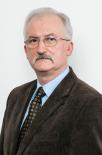
Mr. Andrzej Galik
IPPT PAN
Warsaw, Poland
Mr Andrzej Galik, Deputy Director of NCP Poland, – Manager with over 15-years’ experience at different management/administration positions of a big international manufacturing companies with vast knowledge and experience of IT services with good work experience in varied work cultures (Polish, American, French, English, Chinese and Indian). Previously ICT coordinator in FP7 and CIP-ICT PSP. Today responsible for infrastructure, telecommunication, systems and applications build for the NCP network and their beneficiaries. He is a National Expert for ICT in Poland and member of EC H2020 ICT Programme Committee Graduate from Warsaw University of Technology (WUT).
Invited papers (6)
- Production of solar and wind energy in Azerbaijan: tendencies, recent changes and relevant environmental effects
Rovshan Karimov* - The development of renewable energy resources in Georgia at the example of bio-mass manufacturing.
Zviad Gviniashvili* - Using Hydrogeophysical Research Methods for Assessment and Sustainable Development of Geothermal Resources of Georgia
George Melikadze*, Nino Kapanadze, Tamar Jimsheladze - Black silicon antireflection coating for silicon solar cells
Razmik Barseghyan*, Gagik Ayvazyan - POWER AND ENVIRONMENTAL FUNDAMENTALS OF NATURAL GAS SUBSTITUTION FOR ALTERNATIVE FUELS / CRITERIA, TECHNIQUE, SPECIFIC ENERGY AND FUEL FLOW RATES - COMPARATIVE DATA, SPECIFIC EFFLUENTS OF CO2 AND NOX– COMPARATIVE VALUES
Borys Soroka* - LOW CARBON TECHNOLOGY FOR HYDROGEN ENERGY
Islam Mustafayev*
SPECIAL EVENT: Special event: Beyond Energy Action Strategies
Session resume:
Beyond Energy Action Strategies
Sustainable energy action plans, SEAPs, are an important tool for realizing transition of the current energy system to more sustainable one. More and more, European regions, cities and municipalities have developed SEAPs. The implementation of the SEAPs is ongoing but there is a clear implementation gap. The special session looks for new tools, methodologies and case studies that can clerly show how to plan and reach speed implementation processes and that can promote actions beyond the direct influence of planning authorities. The Special event will show how to overcome a key barriers which are the lack of power of local and regional authorities to develop and take implementation decisions on sustainable bankable projects that correspond to their SEAP. Special event is supported by IEE-BEAST project (www.beastproject.eu)
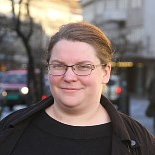
Ms. Guri Bugge
Østfold County Council
Sarpsborg, Norway
Guri Bugge has a Cand. Scient. degree in Paleobotany from the University of Oslo, examining plant fossils from the Cretaceous-Tertiary transistion (66 mya). The late Cretaceous to early Paleogene was defined by rapid changes in biodiversity and climate, partly due to a major meteor impact. Today, the IPCC has shown that human emissions are contributing to create a similar rapid climate shift. To try to limit the consequences of climate change, Guri Bugge has been employed by the county councils of Møre og Romsdal and Østfold to find ways to reduce local and regional climate gas emissions. Through her work as an environmental coordinator, Guri Bugge has been responsible for the implementation of the regional SEAP in Møre og Romsdal. Since the county council approved the SEAP in December 2009, the number of electric cars in the region has increased by 3200 %. The steep mountains, deep fjords and challenging weather do not improve the range of the EVs, and one of the main issues she has been trying to solve is how to build charging infrastructure to make the entire county accessible for EVs, within tight public budgets.

Prof. Goran Krajačić
University of Zagreb
Zagreb, Croatia
Goran Krajacic, Ph.D., (http://powerlab.fsb.hr/gkrajacic/) is working as associate professor at DEPEE (UZ FSB) and head of Power Engineering and Energy Management Chair. His field of work includes energy markets, research in energy planning, energy system optimization; island energy system modelling and optimization, development of models for simulation of energy systems, renewable energy sources, energy storage, energy economics and policy. Since his employment at DEPEE he has been working on the many international and EU projects as well as on national project Smart Energy Storage for Sustainable Development of Energy Systems. He worked on development of SEAPs for local communities on the islands and development of financial mechanisms for support of the energy storage technologies. He was also involved in development of Strategy for self-sufficient island Unije as well as several other strategies for achieving 100% RES energy systems on the islands. Currently he is coordinating FSB participation in the project H2020-LC-SC3-2018-ES-SCC- INSULAE- Maximizing the impact of innovative energy approaches in the EU islands. Since 2002 he has been a member of Local organising committee of Sustainable Development of Energy, Water and Environment Systems Conference (SDEWES). He is also SDEWES Centre Secretary since 2009. The results of his scientific work were published in the more than 80 papers, according SCOPUS database his h index is 32.
Invited papers (13)
- BEAST action "Promotion of electrical vehicles in the East Sweden Region"
Ylva Ek* - EC IEE project - Beyond Energy Action Strategies (BEAST) - implementation in Latvia
Inga Kreicmane* - Utility of low temperature waste heat from natural gas processing plant
Lina Jonasson* - Title: Renewable Energy in the Outer Hebrides of Scotland: Harnessing the Potential
John Cunningham, Anne Murray* - EPC (Energy Performance Contracting): Coaching Trajectory for municipalities and cities of the Province of Flemish Brabant
Els Cornelis*, Barbara De Kezel - Joint Sustainable energy action plan for municipalities of the Korcula island according to the option 2 of Covenant of Mayors
Nikola Matak*, Goran Krajačić, Ana Marija Pilato - Cyprus Local Authorities towards a low carbon future
Savvas Vlachos*, Orestis Kyriacou, Panayiotis Kastanias, Anthi Charalambous - ELECTRIC BASED MOBILITY AS AN INSTRUMENT FOR PROMOTING RENEWABLE ENERGIES: THE CASE OF THE CANARY ISLANDS
Salvador Suárez García* - SEAPs and the Covenant of Mayors
Albana Kona*, Giulia Melica, Silvia Rivas-Calvete, Paolo Zancanella, Andreea Iancu, Greet Janssens-Maenhout, Paolo Bertoldi - Implementation of Eco-Lighthouse Management System at the County Authority of Møre and Romsdal.
Stephen Oommen* - Comunita Montana Valtellina di Morbegno (CMM) - a virtuous example towards Europe2020
Maria Rosa Chiecchi* - Electrification of transport and local energy projects in the City of Dubrovnik
Marko Cosmai* - Vehicle fleet electrification - the case of National park of the island Mljet
Branimir Škugor*, Josko Deur










